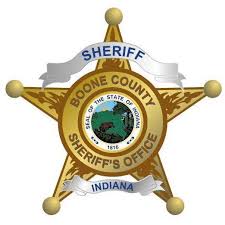 Indiana University is offering free, online training in the administration of Naloxone/Narcan, the lifesaving drug that is used to reverse opioid overdoses. The training is quick, easy, and online. All you have to do is sign up to participate.
Indiana University is offering free, online training in the administration of Naloxone/Narcan, the lifesaving drug that is used to reverse opioid overdoses. The training is quick, easy, and online. All you have to do is sign up to participate.
The Opioid Rapid Response System (ORRS) uses the PulsePoint mobile app technology – linking in real-time, citizen responders to possible opioid overdose events occurring in public places in the community. Citizen responders are members of the general public who want to be trained in naloxone and rescue breathing administration, NOT a trained first responder (e.g., physician, EMT, fire or rescue, or law enforcement).
Indiana University’s goal is to provide free online naloxone training to 220 people residing in Boone and Hancock Counties. All participants receive a free naloxone kit and compensation for completing two surveys. The study ends June 30, 2021.
To learn more about ORRS and sign up for FREE Naloxone Training please use the link provided below: https://prevention.iu.edu/projects/orrs/training.php
The Boone County Health Department stated, “The Boone County Health Department is proud to partner with IU School of Public Health – Bloomington and the Boone County Sheriff’s Office in this effort to combat the opioid epidemic in our own community. Opioid overdose deaths have sadly increased during the pandemic and we encourage our residents to take these simple steps to combat this crisis that has touched the lives of so many.”
Chief Deputy, Colonel Tony Harris stated, “There were over 87,000 drug overdoses that occurred in the US in the past year. This is the highest number ever recorded in a 12 month period. If you are contemplating taking this training, please do! For the life you save maybe someone you know.”
Boone County Jail Commander, Capt. Tim Turner, stated, “By providing this brief training, people who use heroin and other opioids, along with members of their family and social networks can effectively recognize and respond to an opioid overdose and successfully administer Naloxone. We should look to Naloxone as one of the primary interventions to help stem the opioid crisis. Using Naloxone helps prevent fatal overdoses, which in turn allows more time for health care professionals to assist those in need of intervention into evidence-based treatment and, in the long run, keep more people alive. This is a tool that treats the leaves on the tree. The evidence-based treatment allows them to discover truly the roots of the issues and in return affecting the whole tree. People with opioid use disorder have to survive to get better. Naloxone keeps people alive and gives them that chance.”
